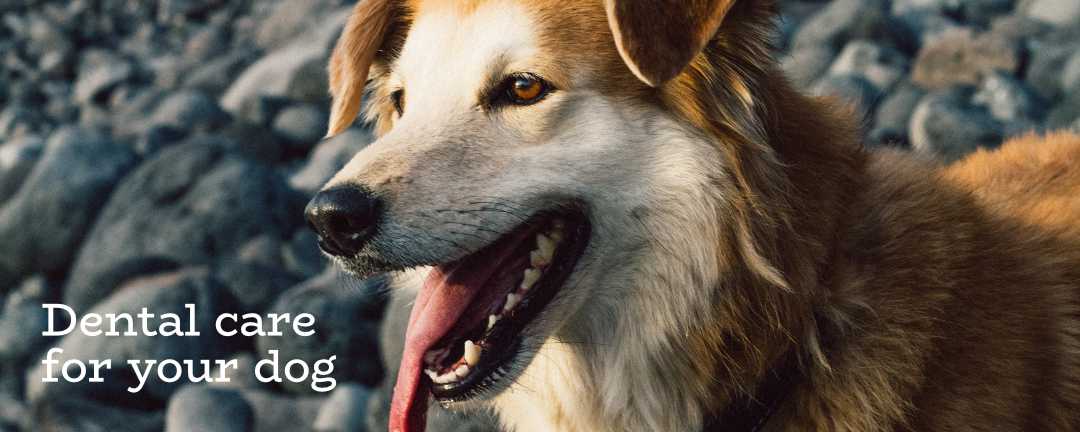Dental care for your dog

How do I care for my dog's teeth?
Basic dental care for dogs.
If you didn't brush your teeth at least once a day the chances are you wouldn't have many friends. The gooey plaque that builds up on your teeth from the bacteria in food, proteins and and other sources of bacteria turns into a hard tartar on the teeth. This leads to inflamation of the gums causing them to recede and sometimes bleed. The gaps caused by this recession lead to areas of infection building up around the teeth and you get the characteristic 'doggie breath' that will send people scurrying for fresh air.
What can you do to prevent tooth decay in your dog?
It is estimated that over 80% of dogs have issues with their teeth by the age of 3, which is a pretty startling statistic. But the good news is that there are some simple steps you can take to prevent your dog becoming affected and lead a healthier (and fresher smelling) life. As well as your dog smelling better it will be easier on your pocket if your dog does not require expensive visits to the vet for attention to their teeth. As with humans, a simple routine of regular checks and good brushing is basically all that is needed.
Tips and tricks to keep your dog's teeth clean
Dogs are not hugely fond of minty flavours and foamy foodstuffs, so don't try your regular Colgate or Oral B on them. Fortunately you can buy specialist dog toothpaste that comes in yummy meaty flavours. Use a very soft toothbrush, either a baby's toothbrush or you can buy one that fits over the end of your finger. The brush needs to be soft so as to avoid any gum damage.
Intitally, though, get them used to the taste and texture by just applying a small amount to your finger and letting them have a taste. Next rub your finger with the paste over your dog's teeth so that they become accustomed to action of brushing. Once they are well used to this you can then introduce a brush with the toothpaste.
Brushing and cleaning techniques
- Always brush at least once a day.
- The base of the teeth is very important to clean as this is where plaque builds up.
- You only need to brush the outside of the teeth as your dog will clean the back of the teeth with their tongue.
- Be gentle with the brushing action and don't scrub like your cleaning the dirt off your front step.
- Reward good behaviour until your dog is well used to the procedure.
Warning signs to look for
If there is bleeding from the gums during brushing it is advisable to get your dog's teeth checked by the vet. If tartar build up is severe they will need professional scraping, just as your own teeth would.
It's never too late to start good dental hygiene
Even if your dog needs a good professional clean and scrape, it's never too late to establish good dental hygiene. The benefits will pay-off in later life if your dog has a good set of teeth into their old age. Dental treatment is expensive and is often not covered under regular pet insurance. As with almost anything health related, prevention is always the best medicine.A good quality dry dog food is also good first step in the right direction as it provides a nutritional and well balanced diet.
